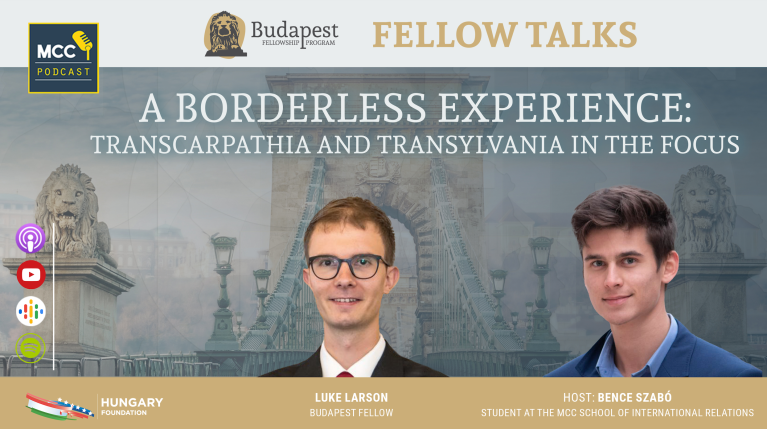Naturally, we all tend to agree: it's good to have basic rights – we are happy to have them. Consequently, we strongly denounce the opposite, the deprivation of rights, the denial of fundamental freedoms. It is obvious that the dignity of the human being and the rules of the game in a democratic playground equally necessitate certain freedoms. On the other hand, it seems to be the case that this consensus vanishes when it comes to the exact content of theses freedoms: one part of a society considers as a fundamental right what the other part perceives to be a deprivation of rights.
In the 21st century, everything appears to revolve around rights – human rights, fundamental rights, constitutional rights. These rights dominate the discourse, whether it pertains to social or political issues, international relations, or war. Moreover, beyond public life, private relations, even the most intimate relations are to be determined by reference to our human rights. Every dispute is a legal dispute and at the same time a dispute about absolute and fundamental rights.
When we ask what the problem is with rights, we are not questioning that the safeguarding of personal freedom, the preservation of democratic relations and a flourishing society require respect for certain freedoms (rights). The question at hand is whether a social and international order is desirable in which all claims and interests are dressed as subjective rights, and when judging things, all other considerations (morality, religion, rationality, efficiency, public interest or even nature) are subordinated to the imperative of fundamental rights and rights-based reasoning – or 'rights-talk'. This, then, is the central query presented by Oxford University Emeritus Professor Nigel Biggar's book What's wrong with rights?.
The title of the book suggests that the author believes that there are issues with rights. However, before delving into the heart of the matter, it is crucial to mention one essential premise of the work, namely, the existence of objective morality. In his commitment to moral realism, Nigel Biggar is committed to moral realism, admittedly influenced by his Christian beliefs, but his argument is also supported by well-known examples of a system of norms that coexists with, alongside, or even above law. On the one hand, the development of human values in different cultures, independently of one another but still with similar results, and on the other hand, the rejection of moral realism leading to a lack of moral basis for rejecting certain unjust laws (e.g. racist legislation). This starting point is certainly important, since one of Biggar's fundamental criticisms concerns the conflation of law and morality.
From moral realism, it follows, according to Biggar, that there is in the first place a moral right, which is equivalent to that which is morally right all aspects considered. As we often regard morality stemming from the permanence of nature (especially human nature), a moral right can be regarded as natural law or natural right. In contrast, subjective rights derive from the legal system, gain their force from the authority of law, and therefore Biggar marks subjective rights as paradigmatically legal rights. Subjective rights are thus well defined (more clearly than natural rights to say the least) and their enforcement is ensured by an institutional system and social obedience. In contrast, natural rights remain free of institutionalization, in a so-called state of nature. Biggar adds that natural rights are often understood to mean that the granting of a given legal right justified or even required by moral laws. When we refer to a right as a human right, Biggar argues that what we mean is that the requirement of granting that right attributable to human nature (human dignity). In addition, the terms 'universal' and 'absolute' are widely used for certain rights – the former implying that the right is to be guaranteed in all legal cultures and societies, and the latter implying that the exercise of the shall not be subject to discretion, can never and under no circumstances be limited or suspended.
Biggar devotes part of his book to exploring the philosophical tradition of human rights discourse and to analyzing the work of skeptical authors, in particular Burke and Bentham. He concludes that the goods that societies seek to protect through granting rights are mostly universal – different cultures equally recognize that certain human values are worth protecting. However, he argues that the way in which these values are protected is highly dependent on the historical or cultural context. In this respect, therefore, human rights are not universal – there may be cultural differences in the way and extent of protection, including whether protection means, for example, the granting of legal rights. While he acknowledges that the granting of some legal rights has benefits for a society, as the duties that balance rights remind people to fulfil their obligations, he criticizes the approach in which solely rights can be the basis for moral judgments. Biggar's critique is thus primarily concerns a rights-fundamentalism that conflates morality and subjective rights, and which he sees as a kind of secular religion – a belief that refuses to compromise with the facts, social or political circumstances, costs and risks. While the consideration whether to grant a given right or not is fundamentally a moral issue, responsible decision-makers must also take into account other factors, risks and costs, according to Biggar – even when it comes to moral rights, he does not emphasize their absolute nature, but rather their appropriateness in a particular situation, after all the circumstances were considered). The question is: who should make these decisions? Biggar argues that this should be a matter for the politically accountable legislative branch rather than the courts. As the professor emeritus of the University of Oxford is visiting Budapest as keynote speaker at the conference on international courts organized by the MCC Center for Constitutional Politics, it is worth focusing on his views on the role of courts and international tribunals.
Biggar is thus quite critical of the judicial way of what he calls rights-fundamentalism. He sees that a soothing decision for the people of a society on the question of rights can be made by ensuring that they are provided with both the possibility of having a say in and of changing this decision. He would even prefer to put these decisions in the hands of the politically accountable branches, if the legislature could otherwise override constitutional court decisions, but in most of continental Europe, overriding constitutional court decisions by legislative means is not an option (except for the constitutional majority, of course). Even when it comes to ‘weak’ constitutional adjudication, legislative override, while not prohibited, can still be politically awkward. Biggar also sheds light on a number of problems when rights-talk infiltrates international courts. He sees international rights-fundamentalism, having far higher than realistic standards, as undermining the social credibility and authority of rights, and therefore ultimately the authority of an international court with unrealistic standards. Biggar contends that more progressive judges tend to extract fundamental rights requirements from general provisions, which, even if desirable in ideal circumstances, are applied to less-than-ideal situations. This leads to a political and cultural backlash that undermines the already precarious foundations of trust in the institution of international courts. As per Biggar, this erosion of social-political authority affects not only the courts but also the law itself. His critique of rights-fundamentalism and international courts will be further examined at our conference on "The Purpose and Limits of International Courts", where he will deliver a keynote speech on rights, progressive judiciary, and national trust in international courts.
Although the arguments I highlighted from the book may paint a gloomy picture of the functioning of a rights-based legal, moral and international order, it does not necessarily mean that rights should have no place in a good social ordering. The book does not take a stand against the basic idea of rights, but rather against the rights-talk that radically absolutizes them and argues for the proper exercise of our rights (and respect for the rights of others). It would persuade the reader not to defend the absolute and inviolable nature of his rights, but to exercise them in accordance with a higher moral good, and to fulfil his obligation to respect the rights of others, and to recognize that our obligations reach far beyond legal impositions. We cannot, as a society, invoke rights to replace moral considerations.
Nigel Biggar: What’s wrong with rights? (Oxford University Press, 2020.)









